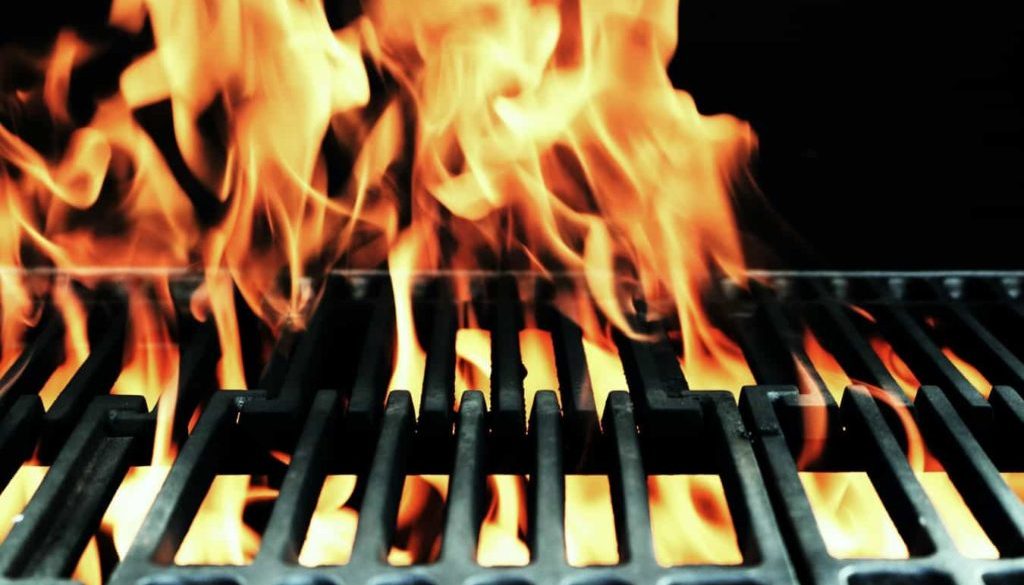Is it safe to host or attend an outdoor gathering?
Are outdoor gatherings safe during COVID-19?
At this stage of the COVID-19 pandemic, some states have eased restrictions while others are seeing their worst days. Many top pandemic and government officials around the country are telling the public to stay home, but anxieties are high for social interaction with others. Graduations and July Fourth celebrations are behind us and BBQ season is in now in full swing. While most experts believe that the risk of contracting COVID-19 outdoors is lower, the lingering question for many is whether or not it’s safe to host or attend backyard parties or an outdoor gathering? Here are a few things you should take into consideration.
Studies have found that if you will be hosting or attending small gatherings this summer, it is better if they were outdoors rather than inside. While there is no way to be 100 percent certain that you will not contract COVID-19 outdoors, we can be somewhat confident that it is lessened at an outdoor gathering. According to a recent study in Japan, scientist found that the chances of catching COVID-19 is less likely outdoors. Nonetheless, precautions must be adhered to in order to lower your chances of being infected or infecting those around you. Another study in China found that their country also saw very low instances where COVID-19 transmission took place at an outdoor gathering.
This doesn’t mean that we shouldn’t practice social distancing, wearing mask and using hand sanitizer. What this does mean is that we should do all that we can to ensure our individual safety as well as the safety of others by following CDC guidelines.
How many people is too many?
The safest thing we can all do is to stay isolated from others, but that is nearly impossible. The truth is that anytime we gather together, regardless of group size, we expose ourselves to potential risk. Whether it be going to work, the grocery store, gas station or anywhere there might be groups of people. As of July 2nd, here in New Jersey we have been granted the ability to hold indoor gatherings of 100 people or less and less than 500 people for an outdoor gathering. A 500-person backyard party doesn’t seem to be the wisest thing to do in these times, but according to New Jersey ordinance it is permissible.
The bottom line is, the smaller your guest list, the less likely your chances of inviting someone to your home that may have been exposed to COVID-19. It just makes sense from a probability standpoint. You’ll also want to make sure that there is adequate room for guest to keep at least 6 feet apart. When deciding who should come, you’ll want to consider their health status to ensure that people who might be immunocompromised are not in attendance in order to keep them safe. It really all comes down to having enough space to keep people socially distanced.
How can I safely serve food?
Serving food and beverages can be tricky during this time. Having all the foods accustom to a barbecue can be accomplished by having individually wrapped meals. Also have a specific time for people to sit down and eat. This way everyone can be seated and served without groups of people gathered around a food table. Your grill can be managed by one individual who can cook and also distribute accordingly. With that said, having designated servers will also cut down on your guest touching items and the likelihood of spreading Covid-19. Things like fruit, salads and sides can be pre-wrapped individually to ensure the safety of your guest. Condiments for burgers and hot dogs can also be served in small plastic containers with lids or by way of individual packets. As another safety precaution, you might want to give out pre-packaged utensils like the ones you would find at your favorite take-out. Chips and other snacks should also be served in prepackaged portions which you can buy or make yourself using Ziplock bags. Providing canned beverages with straws will also allow your guest to drink under their mask. Lastly, assigned seating is a good idea to group household members together lessening their contact with others.
Should guest wear masks and gloves?
Studies have proven that mask and gloves do reduce the spread of COVID-19. One of the best ways to ensure that all of your guest have them is to provide them upon their arrival. It should go without question that anyone handling food should have on both. As for your guest, passing out mask and gloves as they arrive will ensure that they have them. It is also wise to inform guest in their invitation that you require them to wear a mask and gloves. Should they not want to comply then it is better for everyone that they not attend. This will ensure both the safety of your family and attendees.
Should guest be allowed to use your home bathroom?
Use of your home’s bathroom is something that you may or may not want to allow. There is really no right or wrong answer and is solely up to your personal preference. Should you decide to allow guest into your home, there are some precautions that can be taken to reduce the likelihood of COVID-19 transmission.
You may first want to inform guest to close the toilet seat prior to flushing. This is because COVID-19 is known to be shed through the GI tract. Studies have found that the virus can be spread to other bathroom surfaces by flushing the toilet.
We hear this one all the time and it’s hand washing. One of the simplest ways to protect yourself against COVID-19 is by washing your hands. A recent study showed that 40 percent of people do not wash their hands after using the bathroom. This data may convince you to keep a hand sanitizer station nearby as well.
Have your guest use paper towels to dry their hands versus using a cloth towel. This will cut down on them touching the same surface repeatedly. As an added layer of protection, you can ask guest to turn the knob with a clean paper towel as they exit. It’d also be wise to place a trash receptacle in close reach to dispose of their used paper towels.
Other suggestion to safely host and outdoor gathering
- Keep music levels low to avoid attendees having to move closer to hear one another
- Have guest bring their own food (BYOF) and or beverages (BYOB)
- Place hand sanitizer stations close to places where people will touch things the most
- Continually sanitize surfaces that are repeatedly touched by guest



